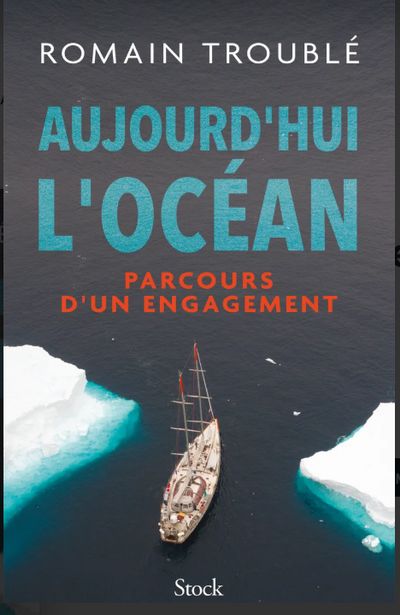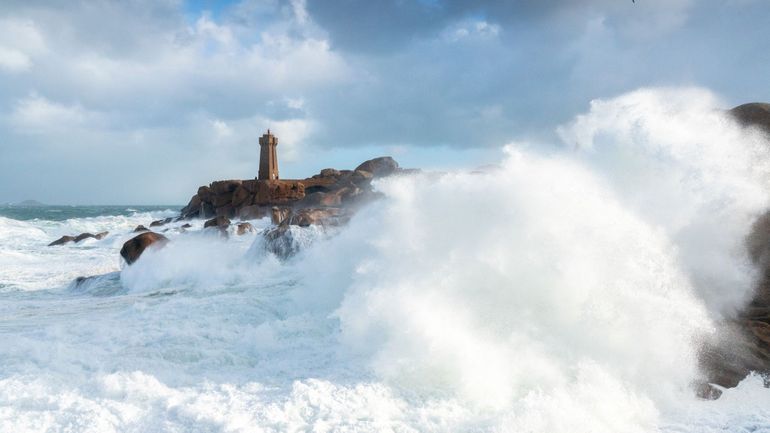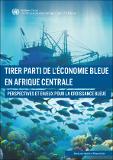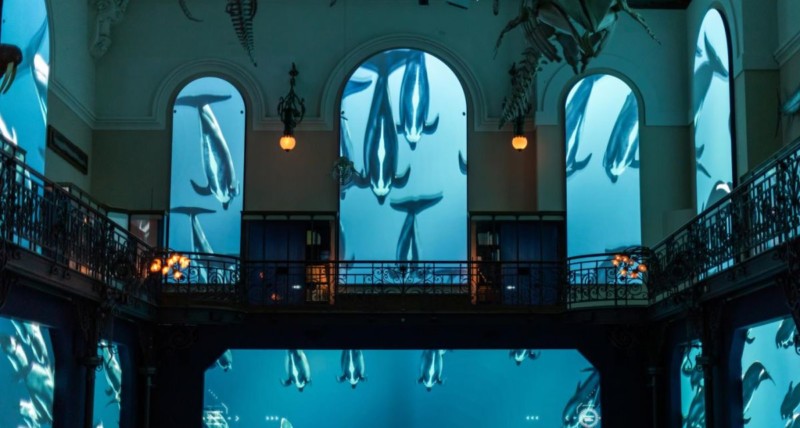The United Nations Ocean Summit concluded on June 13 in Nice. Overfishing, deep-sea mining, pollution from ships and plastics, acidification — the oceans face numerous threats. Are the advances made at this summit significant? Are our individual and collective actions meaningful?
On Tendances Première, Romain Troublé, CEO of the Tara Ocean Foundation, environmental activist, and author of Today’s Ocean: Twenty Years of Exploration and Observation (Stock Publishing), retraces the path of his commitment. He also shares how he became one of the leading voices for the ocean cause.
Arctic Expeditions, Tara Ocean’s Sentinel Role, and the Urgency to Protect Our Oceans
Since 2003, Tara Ocean—the world’s first foundation dedicated exclusively to the ocean—has been conducting scientific expeditions to study marine biodiversity, observe and anticipate the impacts of climate change and pollution. The initiative involves two key elements: Tara, the research vessel, and the Tara Pollard Station for ocean studies.
Scheduled through 2046, ten consecutive missions will explore the Arctic, described by Romain Troublé as “a sentinel of climate change.” Onboard are climatologists, biologists, physicists, glaciologists, oceanographers, artists, doctors, journalists, and sailors from around the globe, forming teams of up to 18 members—the maximum capacity on the vessel. “There are also many teams on land, many partners, generous donors, and families who support these essential projects,” he adds.
The goal is to measure climate change’s impact and understand how life functions in this environment. “There is a real issue: how will life resist if summer ice disappears? This extreme environment teems with innovations related to the evolution of life, molecules, and genes that are interesting for all of us. It is a major exploration.”

Investing More to Protect the Ocean and Give It a Voice
Compared to space exploration, only 0.1% of investment goes toward the ocean, which is directly linked to sustaining life on Earth, Troublé reminds us. “The UN conference in Nice emphasized this: we need to invest far more than we have in the ocean to understand what is happening and anticipate changes. It will cost a lot of money, and if we don’t anticipate, it will cost even more.”
Giving the ocean a stronger voice is essential. “We’re working on this with the high seas treaty that will soon be ratified—one of Nice’s successes. The ocean needs rights, because as long as it lacks legal existence, it will never appear in any contracts, business deals, or agreements. For me, this is a key challenge.”

“The Worst Is Never Certain,” but It’s Time to Act
This motto, “The worst is never certain,” comes from Troublé’s grandfather. The ocean, birthplace of life 3.8 billion years ago, remains today the engine of its preservation. Without this global climate regulator, Earth’s average surface temperature would not be 15 degrees Celsius but around 32 degrees.
“On our scale, the ocean seems immense and deep, a place where we can dump or take anything without impact. But over the last 30 years, we have realized it is neither so vast nor so deep, and the ocean suffers greatly. All our consumption, everything flushed down toilets, much ends up in the sea. It’s like a huge container taking everything,” laments the activist.
Every citizen plays a role in preserving our seas. Small actions are like drops of water that matter: “Do we really have an impact? Maybe little, but if we weren’t there, it would be much worse. So don’t give up. Instead of driving, take your bike. You may think you have little impact, but together, we create a big one.”
Becoming a father to Fleur and Nemo gave Troublé the urgency to act for ocean protection. “If we ease pressure, pollute less very quickly—within three to five years, within a political mandate—we see the effects of protective decisions. That’s gratifying.”
He stresses the urgent need for citizens to fight climate change:
“Everything will be decided between now and the next 20 years. More than ever, the ocean needs us.”
Special UN Observer Role
The Tara Ocean Foundation, recognized by the public and scientists alike, has become a special observer at the UN, participating in major decisions concerning the ocean.
At the third United Nations Ocean Conference, the assessment was mixed. “A major diplomatic achievement is that it was only the third ocean conference, while there have been 30 on climate. So we are somewhat behind for this ecosystem. More than 50 heads of state and government, many ministers, NGOs, scientists, banks, and insurers focusing on financing the blue economy of tomorrow attended. So there is very strong and unprecedented mobilization at the UN,” Troublé says with cautious optimism.
Topics like plastics, minerals, deep-sea mining, and labor issues—including modern slavery at sea—were discussed. However, there were disappointments, for example, “only 4% of the French metropolitan zone has been closed to bottom trawling, which was still allowed.”
To learn more about Tara Foundation’s data, listen to the podcast A Porthole on the Ocean, which has three seasons and a recently launched fourth season reviewing the outcomes of the Nice summit.
Source: rtbf




